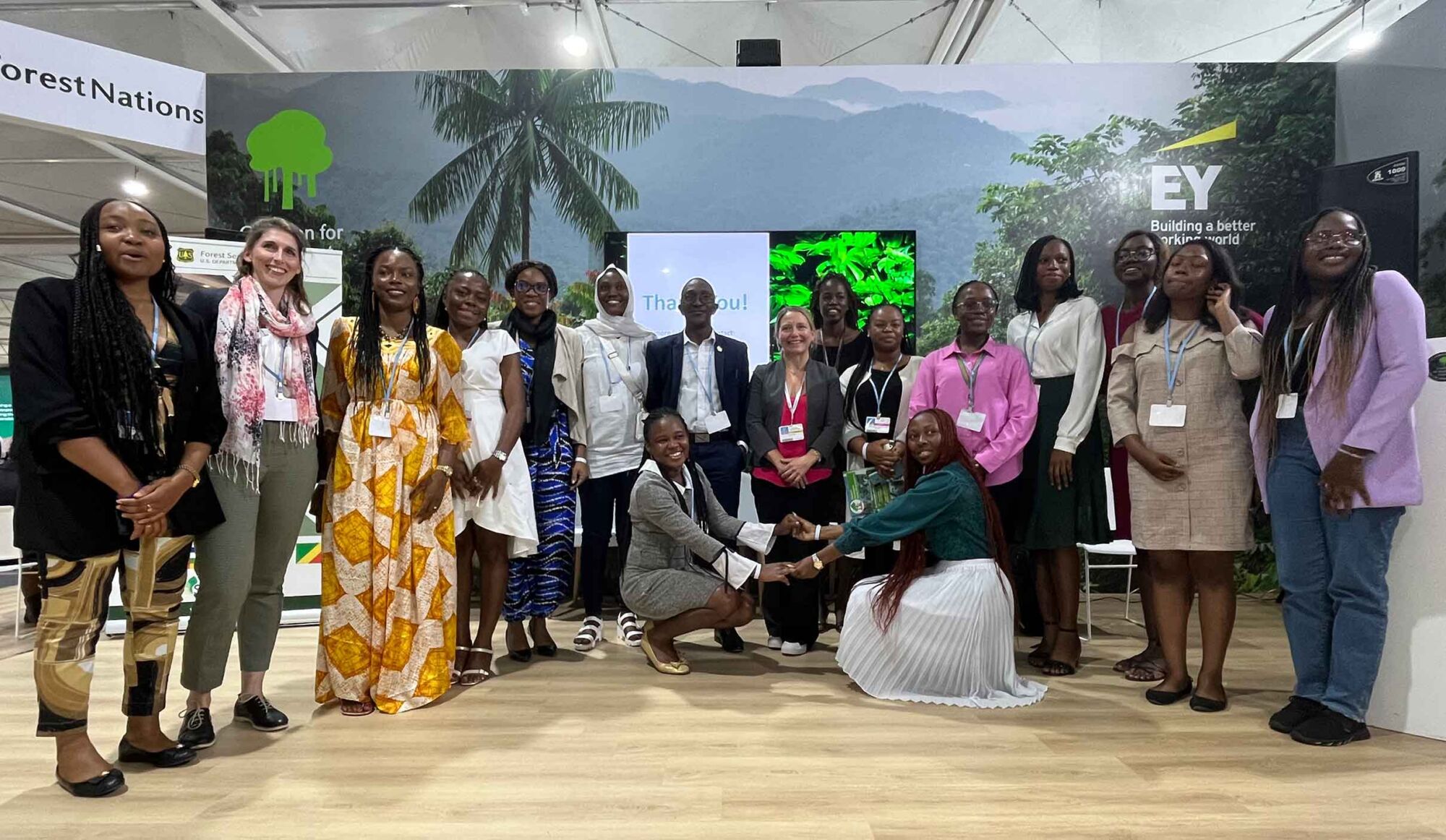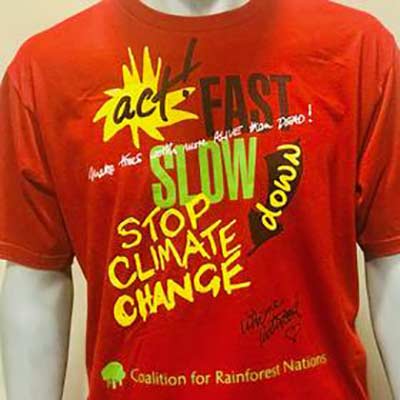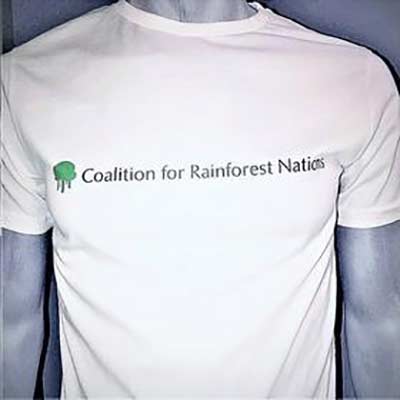
WICA alumni and current students with their mentor, Eloïse Guidi (second from left), a CfRN GHGI expert
CfRN Trains Central African Women for Roles in Climate Sector
At its pavilion at COP27 in Sharm-El-Sheikh Egypt, CfRN featured a relatively new and very popular program that helps women fight the climate emergency. It is The Central African Women’s Initiative (WICA). The program teaches young women from central Africa to become experts in accounting for greenhouse gasses.
In an era when The Economist reports that climate impacts are reversing gains in gender equality and women and girls are disproportionately impacted by the climate emergency, WICA is a way to fight back. The Economist notes that climate issues amplify existing burdens on women. For example, in many regions women and girls must secure food, water, and fuel for their families, chores which become a lot more taxing during droughts and hot spells. Gender disparities in access to education, information, mobility, resources, and training, The Economist also finds, makes women less likely to survive disasters.
WICA is addressing the issue head on. CfRN has been cooperating with WICA for the past two years. WICA is supported by the U.S. State Department and implemented by the U.S. Forest Service International Programs (USFS-IP). By training women from central Africa in Greenhouse gas accounting, WICA gives women a skill that leads to a well-paid job, and the tools to measure greenhouse gas emissions so we can manage them. WICA teaches the standards used by the experts at the United Nations Framework Convention on Climate Change (UNFCCC). And the WICA women become experts themselves, learning to account for emissions at the national but also corporate and project level.
Designed to address gender discrepancies in climate work and increase the participation of Central African women in the workforce, it also answers a growing need for more experts in the field, as the implementation phase of the Paris Agreement has begun.
Who Can Apply?
With a total of 300 women participating in the 3 years since its founding. WICA targets students or young professionals passionate about climate issues. So far, participants have come from Cameroon, Gabon, the Democratic Republic of the Congo, the Republic of the Congo, and the Central African Republic.
At COP 27 the Coalition for Rainforest Nations celebrated the program’s success. The pavilion event was well attended by current participants and alumnae. Eloïse Guidi, a CfRN greenhouse gas inventory expert who is a beloved mentor to the women in the program and teaches some of the classes joined the Director of the Education Program at the Greenhouse Gas Management Institute and former and future WICA graduates for the event.
A Graduate Shares Her Experience
Lindsay Deinou, 24, from Cameroun, who attended COP 27 with the WICA fellows, and the Cameroun delegation shared her thoughts on how WICA broadened her career development.
“The program allowed me to undertake two internships, one at the National Observatory on Climate Change (ONACC) and one at the Ministry of Environment, where I could practice what I learned throughout the training. WICA is essential in our countries because we truly need human capital in climate related jobs, and the fact that it is aimed at women is very meaningful because they are the ones who suffer the most from climate change in Africa and elsewhere”.
WICA and CfRN have given women from the rainforest countries of the Congo Basin a tool to help their countries build women’s job skills. This not only helps the women find work, but it helps their nations meet their Paris Agreement goals and build resilience to the climate emergency. Measuring greenhouse gas emissions is the first step to managing them, after all.


